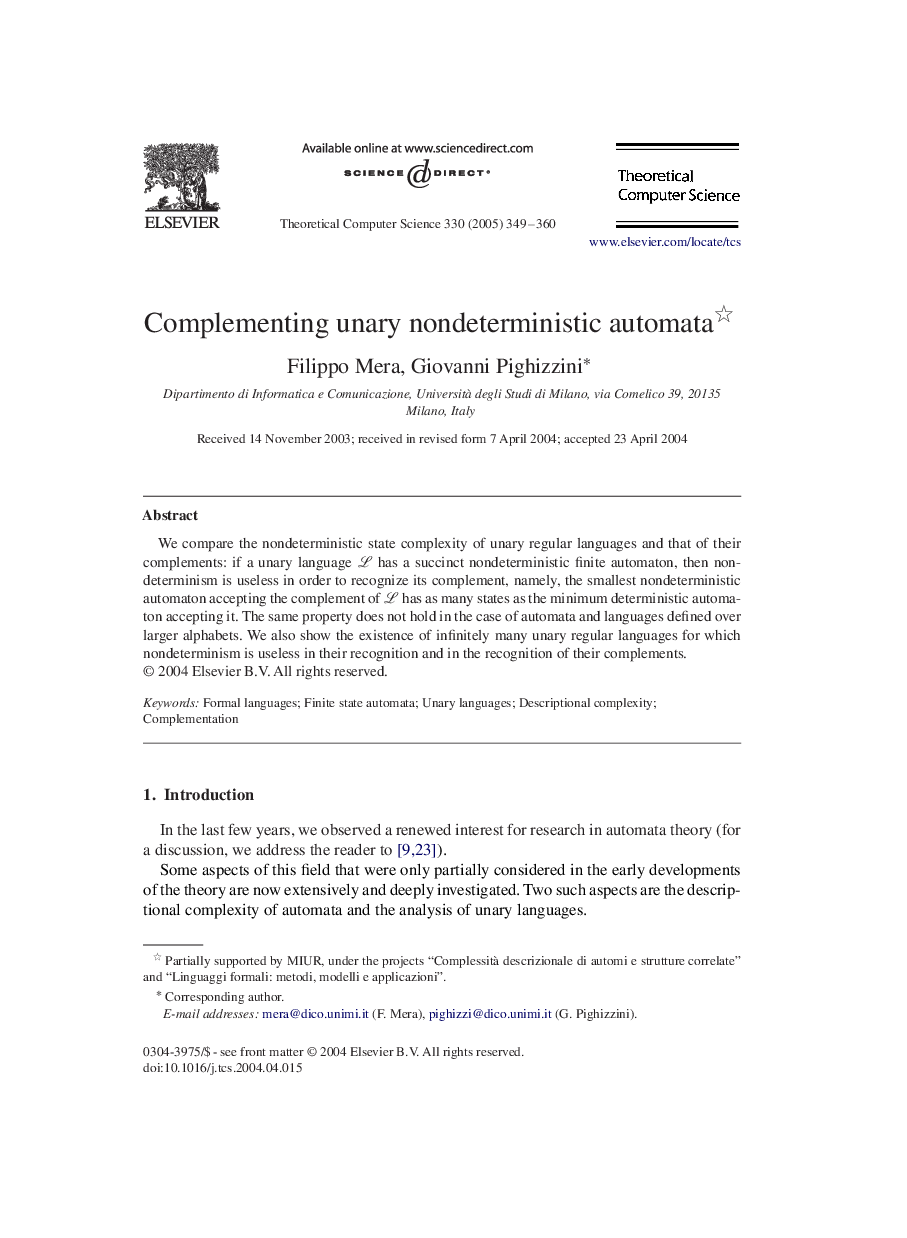| Article ID | Journal | Published Year | Pages | File Type |
|---|---|---|---|---|
| 10334325 | Theoretical Computer Science | 2005 | 12 Pages |
Abstract
We compare the nondeterministic state complexity of unary regular languages and that of their complements: if a unary language L has a succinct nondeterministic finite automaton, then nondeterminism is useless in order to recognize its complement, namely, the smallest nondeterministic automaton accepting the complement of L has as many states as the minimum deterministic automaton accepting it. The same property does not hold in the case of automata and languages defined over larger alphabets. We also show the existence of infinitely many unary regular languages for which nondeterminism is useless in their recognition and in the recognition of their complements.
Keywords
Related Topics
Physical Sciences and Engineering
Computer Science
Computational Theory and Mathematics
Authors
Filippo Mera, Giovanni Pighizzini,
